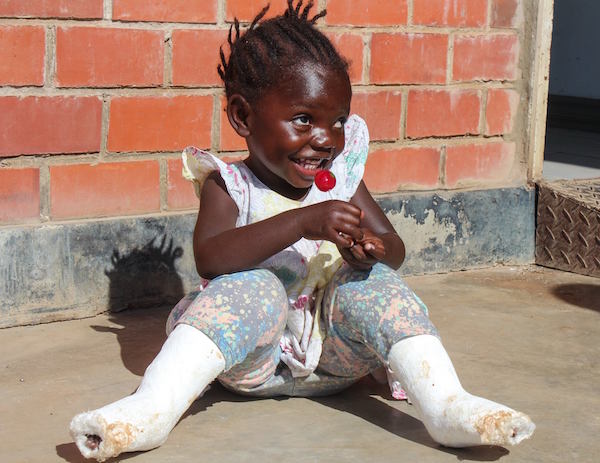WDI, with funding from USAID, is working with the government of Madagascar and the Global Health Supply Chain Program to develop a financial model for the country’s existing cost-recovery system. This financial model will then be used to identify policy recommendations to improve the likelihood of consistent financial solvency for each of the entities involved in the cost recovery system.
The expectation is that the recommendations generated would improve the financial solvency of Madagascar’s cost-recovery system, which is meant to recover the logistics and administrative costs associated with the provision of essential medicines.
The Africa Institute of Management (IAM) in Senegal has a number of family-run companies that have asked for help with succession planning – transitioning the ownership and operation of a business from one generation to another. MADE is developing a program that includes a survey to assess the company’s current state in terms of transition readiness, mentorship options, access to IAM courses to shore up skills and technical support.
WDI, in a second phase of support to the SWEDD initiative, drafted a report summarizing the strengths, weaknesses and lessons learned during the execution of the first phase of the initiative’s supply chain activities. The report captured the perspective of stakeholders at all levels of implementation – from donor organizations to independent consultants at the country level. The lessons learned from the execution of the SWEDD supply chain activities were shared with teams at the Global Fund encouraging greater efficacy and efficiency of future, similar country engagements.
WDI conducted market research for a company that designs and manufactures unmanned aerial vehicles (UAV) to transport small goods. Use of UAVs to transport items in low- and middle-income countries is low but they show significant potential for making healthcare commodities available in settings with poor infrastructure challenges. The purpose of WDI’s market research was to identify opportunities for this company’s expansion into both healthcare and non-healthcare sectors in Kenya, the Philippines, Zambia and non-healthcare sectors in Senegal. Data had been collected from decision-makers in public and private organizations in each country covering several topics such as product use cases, current transport activities and factors influencing the purchase or lease decision. Data was then analyzed and summarized into a go-to-market strategy for this UAV company in these four countries. This project was funded by the Bill & Melinda Gates Foundation.
![]()
WDI has published a series of articles tracing the rapid development of healthcare delivery and health product supply chains in low- and middle-income countries as well as management education in Central and Eastern Europe over the past quarter century.
The “25 Years of Market-Based Solutions” article series was created to honor WDI’s recently-celebrated 25th anniversary. Since its founding, WDI has studied ways that the private sector can positively impact the work on important global issues. The articles examine what advancements has been made so far, what is happening currently, the challenges that remain and what the future holds.
“The Institute’s 25th anniversary was a great opportunity to reflect on the progress we’ve witnessed and contributed to in our own work across multiple sectors,” said WDI President Paul Clyde. “We wanted to produce something that would be useful as a survey of both literature and activities to researchers and practitioners.”
One article, “25 Years of Healthcare Delivery in Low- and Middle-Income Countries,” chronicles how health outcomes across the world have improved dramatically over that time period. Deaths related to disease have decreased and people are living longer. The article highlights the importance of healthcare delivery and the role it has played in these improvements.
Several authors contributed to the article, including Clyde, Pascale R. Leroueil, who leads WDI’s Healthcare initiative, and Ekta Jhaveri, a senior research associate. Other contributors were representatives from the University of Michigan Medical School, the University of Michigan College of Engineering, George Washington School of Medicine & Health Sciences, Aravind Eye Care System and Makerere University.
A key to effective healthcare delivery is to have strong supply chains, writes Prashant Yadav in “25 Years of Health Product Supply Chain Reform: Market Forms of Organization versus Public Ownership.” Yadav, a former WDI senior research fellow, examines the evolution that has occurred in health product supply chains in low- and middle-income countries in the past 25 years, with a special emphasis on the role of market-based solutions. Yadav also studies areas where market-oriented reforms have succeeded or failed in improving supply chain performance.
The third article, “Development of Management Education in Central and Eastern Europe” looks at the growth of management education in the region and gives recommendations for its future. Authors Danica Purg and Alenka Braček Lalić of IEDC-Bled School of Management in Slovenia discuss how education institutions in Central and Eastern Europe can use management and leadership development to address emerging business issues in the region.
WDI is part of two separate grants awarded by the Reproductive Health Supplies Coalition (RHSC) Innovation Fund, the organization’s flagship initiative to spur and finance promising new ideas and strategies. The coalition, which is the largest network of reproductive health organizations, aims to ensure that a range of quality reproductive health supplies are available equally to all people who need them regardless of income.
Both grants were awarded in March at RHSC’s meeting in Brussels. The first grant was awarded to WDI’s Healthcare Initiative to study and make recommendations to improve commercial distribution of family planning products in remote and underserved populations in low- and middle-income countries (LMICs).

Andrea Bare
The project, “Total Market Approach: Private Sector Distributor Landscape Analysis,” is being funded by the RHSC, a global partnership of public, private and non-governmental organizations dedicated to ensuring that all people in LMICs can access and use affordable, high-quality supplies to improve reproductive health. It will be led by WDI Senior Advisor Andrea Bare and Research Associate Erika Beidelman.
Historically, low-income people living in rural areas have less access to family planning products and services partly due to market distribution barriers. Social marketing organizations (SMOs) play a vital role in improving access to, and choice of, an assortment of family planning products at a variety of prices in underserved markets. SMOs provide product-based contraceptive social marketing programs, which are funded in part by donors, making products and/or services subsidized. As donor support begins to phase out and SMOs pursue transition to greater sustainability with less dependence on subsidies, existing distribution models will be impacted.

Erika Beidelman
Global indicators suggest that the donor resource base for family planning supplies will decrease in the future, widening the existing funding gap. Further complicating the market, demand will continue to grow as countries strive to meet global family planning goals by 2020 – increasing total commodity costs required to meet women’s needs. A RHSC gap analysis showed that in 135 LMICs there will be a $238 million funding gap in 2018 which will grow to $290 million for 2020. For the years 2018-20, the combined funding shortfall is estimated to be $793 million. WDI’s research project will address the urgency of engaging the private sector and commercial distributors as part of the global effort to address the widening funding gap and ensure availability of family planning products.
Bare and Beidelman will take an in-depth look at Malawi as an example country with high donor involvement, strong SMO presence and limited commercial presence. They will then contrast what is occurring in Malawi with countries such as Vietnam, Cambodia, Guatemala or Morocco where donor funds and SMO presence are lower and the commercial distribution sector is more mature. This assessment will map what is currently working and not working for commercial distributors, with insights into their current business and service models, barriers to participation and opportunities for improvement.
By examining Malawi against the other countries, market needs, policy conditions and opportunities can be identified to foster commercial investment and participation within the distribution sector. WDI researchers are then able to develop a set of hypothetical solutions to remedy the challenges and “concept test” them with stakeholders.
The goal is to deliver a final set of potential, recommended solutions for increasing the role of the commercial sector in family planning products distribution to rural and other underserved populations.
WDI has partnered with RHSC on a past project. In 2017, WDI, RHSC and the U.S. Agency for International Development (USAID) collaborated on Market Bookshelf, an easy-to-navigate online platform to facilitate the dissemination and sharing of global health market knowledge. The goal of the platform is to increase returns on donor and other stakeholder-funded research and help advance global health objectives through knowledge-sharing.
In the second project funded by RHSC’s Innovation Fund, WDI will partner with VillageReach on a six-month project to help improve reproductive health supply chains to increase the availability of family planning products.
Many LMIC governments own and directly operate thousands of public health clinics, and spend money to get health commodities out to the clinics. But this becomes a big challenge to reliably get products out there. As a result, governments have paid more attention to more effectively design well-functioning supply chains that align with health policy.
But designing efficient and effective supply chains often requires specialized software and data-intensive analyses, which can be expensive and difficult to manage in LMIC healthcare settings. Additionally, reproductive health commodities are unique because of the need to provide multiple product options to ensure that women are able to choose the products that best suit their specific needs.
WDI developed two different tools to simplify the process of supply chain design by addressing these software and data needs challenges. Both tools use Microsoft Excel, which is widely available, and are designed to operate without requiring intensive data collection.
The first tool uses benchmark and proxy data to help health program managers quickly estimate the cost of operating their supply chain. It can also be used to examine the cost impact of any design changes they are considering, such as delivering products more or less frequently, or integrating family planning product deliveries with other types of products, like HIV malaria medicines.
“The tool allows health program managers to quickly explore these types of supply chain design questions at a high level – questions that would otherwise require a difficult and resource-intensive analysis,” said Michael Krautmann, a senior research associate for the Healthcare Initiative.

Michael Krautmann
The second tool is more strategic in nature, helping health system leaders quickly assess a wide range of factors in their country that affect supply chain performance – geography, politics, financing, human resources – and identify the types of supply chain strategies that are most aligned with that context. Again, WDI helped minimize barriers to using the tool by designing it in Excel and using data that already exists in the global health space. Together these tools allow governments or donor agencies to quickly get answers that aid in improving supply chain design.
WDI and VillageReach have been longtime partners. VillageReach has supported the work of several WDI summer interns, and the Institute’s Healthcare Initiative partnered with the global nonprofit from 2014-16 to enhance vaccine supply chain performance by evaluating mechanisms to improve accountability of vaccine program staff in three provinces in Mozambique.
Also announced at the Brussels meeting was Bare’s election as chairwoman of the RHSC’s Market Development Approaches Working Group (MDAWG). As one of RHSC’s several mechanisms through which coalition members collaborate, MDAWG is focused on the “total market,” striving to facilitate wider private sector involvement and overall market growth. RHSC uses these working groups, along with several caucuses, to bring members and partners together to build sustained, coordinated action toward specific and agreed-upon goals.
Bare’s two-year term involves several duties, including pursuing the objectives of MDAWG to:
Bare will work closely with RHSC secretariat staff to provide leadership for the group’s workstreams and activities, to ensure the visibility of its work both internally and externally and to collaborate with other RHSC working groups.
“I am grateful for this opportunity and excited to work my coalition colleagues in MDAWG,” Bare said. “Through our individual organizations and together as a group, we aim to contribute to the private sector’s development and sustainability in order to increase reproductive health access and supply security.”
Homepage image credit UNFPA Flickr

A child recovers from clubfoot treatment. Image courtesy of CURE International.
The head of WDI’s Healthcare Initiative recently spent a week in Ethiopia identifying and offering remedies for current challenges faced by the nonprofit charitable organization CURE International and its clubfoot program in that country.
CURE operates clubfoot clinics in 17 countries around the world, each tasked with helping children and families deal with the congenital deformity that twists the foot, making it difficult or impossible to walk. In Ethiopia, CURE manages 37 clinics.
Pascale Leroueil, director of the Healthcare Initiative, traveled to Ethiopia for the project, the first time the initiative has worked in the country. WDI has organized student MBA student teams from the University of Michigan’s Ross School of Business to work with CURE in the past, but in India.
“Cure officials in Ethiopia want to grow their coverage in the next two to five years to cover the entire country with clubfoot care, which is an ambitious goal,” Leroueil said. “So they were looking for some advice and our thoughts on their current challenges.”
Leroueil highlighted three areas of concern, beginning with how the nonprofit’s management reporting structure was organized and who reported to whom. Another focus was ensuring the physiotherapists and surgeons who perform clubfoot procedures are properly trained and remain up-to-date on the latest methods.
The final area highlighted by Leroueil that required attention was CURE’s ability to manufacture foot abduction braces at the scale and quality needed to treat the children with clubfoot.
To treat a child with clubfoot, ideally in the first three months of the child’s life, their affected foot is manipulated and placed in plaster casts for six to eight weeks. Often, the child’s Achilles tendon needs to be severed – an outpatient surgery done under local anesthesia. The foot is then placed in a cast again for about three weeks while the tendon grows back. After that, the feet should be in the correct position. The child will wear foot abduction braces for a few years to maintain the correct positioning of the feet.
Leroueil said a student team comprised of Ross School graduate students will soon tackle the challenge of identifying what is needed at the supply chain and brace manufacturing level for the nonprofit to scale up its coverage countrywide.
Leroueil said she gave CURE managers advice on how to address the other two issues she highlighted, and the nonprofit is deciding how best to resolve them. Leroueil said WDI is ready to assist CURE in the future.
“My hope is that our relationship with CURE will continue to grow, both in terms of student and staff projects,” she said.
The objective of this project was to build alignment among donor agencies, governments, and private companies as to the supply chain investments that must be made now to prepare for future changes in healthcare demand. The convergence of trends in technology, innovation, economic growth, and shifting disease burdens will likely drive large-scale changes in the type and quantity of medicines that patients seek, as well as the location and delivery mechanism they prefer. However, the types of investments needed to address these changes – building additional supply chain capacity or developing new workforce competencies – require years to plan and execute, and they cannot be successful without a clear and well-informed vision of future supply chain needs.
WDI helped provide this clear vision through a number of different research avenues:
Through these various approaches, WDI successfully started a global conversation about the need for more future-oriented supply chain investments.
The WDI Global Impact Speaker Series kicks off for the academic year by exploring the role that good supply chains play in ensuring health products reach their intended recipients in Africa and India, how technology is making a difference and why having a motivated and dedicated staff is critical. The Oct. 4 talk featuring David Sarley, senior program officer at the Bill & Melinda Gates Foundation (Gates Foundation), also will highlight how graduating students can make a difference in global public health.
Sarley’s talk, “Primary Health Care Supply Chain Challenges and Opportunities,” will be held at 5 p.m. in Room R2220 at the Ross School of Business. It is free and open to the public.
The WDI Global Impact Speaker Series features thought leaders and practitioners who do innovative work in low- and middle-income countries. They share their experience, provoke thought, and stimulate discussion around the opportunities and challenges of international development.
Over the last five years at the Gates Foundation, Sarley has created and managed investments across multiple delivery teams tasked with strengthening supply chains, and recently joined the Innovation and Strategy team in Vaccine Delivery.
“David has a deep understanding of the needs, opportunities and challenges that many countries face ensuring that their citizens have access to a reliable supply of lifesaving health commodities,” said Michael Krautmann, senior research associate with WDI’s Healthcare Initiative, who has worked with Sarley on Gates Foundation-funded projects. “Through his work at the foundation, David is at the forefront of technological and organizational solutions to these challenges, and his talk will be insightful for students, faculty and all those who are interested in improving global access to medicines.”
Sarley served as a program officer on a large healthcare project, “Developing a Common Vision of Effective and Efficient Global Health Supply Chains”, implemented by WDI and funded by the Gates Foundation, which had a number of sub-components.
One element of the large project was creating executive communications materials to increase global donors’ investment in supply chain, and convey key supply chain challenges and opportunities in global health. Another part of the project resulted in a WDI report, “Designing Global Health Supply Chains for the Future,” that proposed a series of initiatives that governments, global development agencies, and those in the private sector should undertake immediately in order to build supply chain capacity to anticipate these increasing demands in the coming decades.
WDI’s engagement with the Gates Foundation also studied facilitating data-driven supply chain policy decisions by developing a model that incorporates performance tradeoffs and stakeholder priorities into formal cost effectiveness analysis. And, designing and initializing a supply chain resource center in West Africa that provides direct strategy support to governments to help transform their healthcare.
Sarley has nearly 35 years experience in investment and development in emerging markets. He has worked for 15 years in public health supply chain management, including 10 years with USAID grantee John Snow Inc. (JSI) and five at the Gates Foundation. Prior to JSI, he worked in economics consultancy for 16 years in trade, transport, finance and health economics.
He was a volunteer with the United Kingdom-based Voluntary Service Overseas and started his career for Ford Motor Co. in inventory management. He has a bachelor’s degree in Econometrics from the University of Hull in England, and a graduate degree from Southampton University. He has lived in four countries and worked in over 80 countries.
WDI has instituted several changes to its Healthcare Initiative to better coordinate the initiative’s work, increase its capacity and ultimately grow its impact.
As part of the changes, Pascale R. Leroueil has been named director of the Healthcare Initiative. Leroueil joined WDI as a part-time research fellow in January 2015, and became a full-time research manager of the Healthcare Initiative’s Healthcare Delivery focus area about three months later. She assumed her new role as director in July.
Her work mainly explores improving healthcare delivery in emerging markets at the point where patients and healthcare service providers meet. Leroueil’s particular focus is on operational efficiency at the clinic and hospital level, although this work often touches on other aspects of the healthcare business model.
Before joining WDI, Leroueil worked in vaccine development at U-M’s Medical School, where she holds an adjunct appointment. She earned a master’s and a PhD in Physical Chemistry from U-M, and her MBA from U-M’s Ross School of Business.
As a WDI research manager, Leroueil spent six months in 2016 in Geneva collaborating with the Global Fund to support its work in healthcare delivery.
Leroueil will oversee three of the initiative’s focus areas – Healthcare Delivery, Market Dynamics and Supply Chain. A fourth focus area, Health Information Systems, has also been added to the initiative. David Butz has been appointed WDI Senior Research Fellow to bolster the Institute’s academic research on health information systems and apply it to the initiative’s work. Butz also serves as an adjunct lecturer of Business Administration at Ross. He has written extensively about the potential of health information technology to improve patient care, most recently in an article he authored for NextBillion, a WDI affiliated site.

Pascale R. Leroueil
Leroueil said she is thrilled to lead the talented, knowledgeable and experienced Healthcare Initiative team.
“We’re an academically minded group that’s focused on providing practical solutions to healthcare-related challenges,” she said. “While our work in supply chain, market dynamics and healthcare delivery has historically been our bread and butter, we’re excited to branch out into health information systems, too. I think there are a lot of opportunities on the horizon for us as an initiative, particularly as the private sector begins to play a larger role in healthcare, and donors and governments look to identify new health-related business models to decrease their costs.”
WDI President Paul Clyde said Leroueil’s diverse background will help to advance the Initiative.
“Pascale brings an unusual combination of scientific research skills and an understanding of business that fits very well with our mission,” Clyde said. “She also has good relationships with important global health organizations and experience with health care delivery organizations on the ground. She is well positioned to bring different areas of work in global health together and move it forward.”